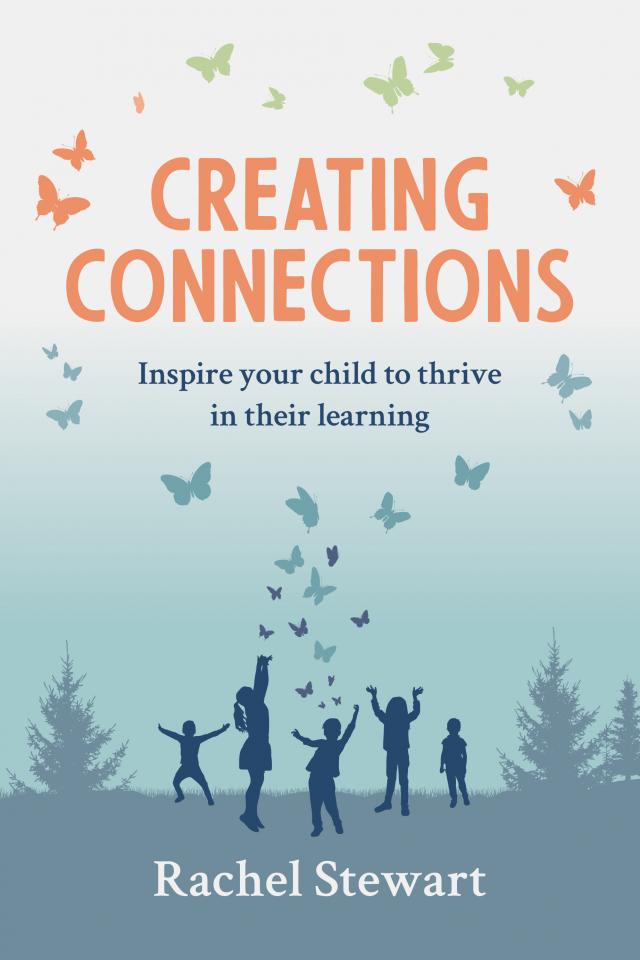By Casey Neill
“Connect and understand who they are as little people.”
It seems like simple advice from parent engagement specialist, author, and mum of three, Rachel Stewart.
But in the wild world of parenting, sometimes the little things can have the greatest impact.
“Kids teach you so much about yourself,” Rachel explained.
“Parenting is challenging, but it can also be really exciting and fun if you make it that way.”
Her book, Creating Connections: Thriving children through inspired parent engagement, came out earlier this year.
She explores the vital role of parents and carers in their children’s education, in particular during the transition to learning at school.
Rachel describes how parents and carers can learn alongside their children, and form a powerful learning team with their children and teachers.
“I started thinking about writing a book when my children were in primary school,” she said.
They’re now aged 21, 19, and 16.
“When my first daughter started school, I felt like there was a bit of a disconnect between myself as a parent and her learning at school,” Rachel said.
“I really wanted to keep supporting her.
“Before school, you’re part of their learning and you’re seeing them learn.
“There is that sense of not really being with them on the journey once they start school.”
She started talking to her daughter’s principal about parent engagement.
“He was taking me to all of these professional learning sessions for teachers on parent engagement,” she said.
“But there weren’t really any resources for parents.”
So he asked her to start a parent group at the school, and Rachel searched for resources to support her in the role.
“This is a book I wish I had when my kids were at school,” she said.
“I wanted parents to understand how they can support their children’s learning at home.
“It’s a partnership with the teachers.
“There’s not a lot of information or awareness from parents because it’s not really something schools focus on when they begin school.
“It’s all about the children.”
Parents get caught up in buying uniforms and wading through school policy.
“But the actual joy that comes from parenting your kids through school is watching them learn,” Rachel said.
“That’s where parents need to be guided to find those joyful moments with their kids.”
She drew on her own experience to write the book.
“One of the most important areas of the book is around relationships and supporting their teacher-child relationship.
“I think the biggest challenge for schools is they assume that parents know what to do.
“It’s not about parents teaching their children curriculum, which is the teacher’s job – they’re trained to teach children the curriculum.
“It’s more about supporting them through conversations about their learning, encouraging them; it’s about providing extra learning opportunities at home that support their learning at school.
“Learning’s not just at school.”
Rachel urged parents to support learning by broadening their child’s awareness of the world around them; giving them opportunities to soak it all in and inspire their imagination.
Go camping. Visit a farm. Attend a free community event.
“These experiences create very important connections in the brain,” Rachel said.
“If a teacher asks them to do creative writing, they need to be able to access their imagination.
“What are they going to write about if they haven’t really had life experiences?”
As a mum of three, Rachel has explored learning alongside three different personalities.
“I really emphasise in the book that every child is different and a unique individual and have their own ways of learning,” she said.
“Sometimes what works with one child won’t work with the next.
“You really have to get to know your children and your own self-awareness – recognise how you’re responding to each child individually.
“That really transformed how I parented. I had to work on my own challenges to be able to be a better parent.
“Parents need to recognise that children are like mirrors to us – they show us our flaws.
“I had to shift the way I approach things and how I respond to them to be able to support them.”
She shares tips in the book for parents to practice self-care and self-love.
“I share a bit about some of the things that I do,” she said.
“When you’re tired or run down or grumpy, that impacts your family.
“It can just be a very small thing that you like doing every day, even a 10-minute meditation or five-minute quiet time.
“It just needs to be something that’s just for you. It’s about prioritising your own self-care.
“You have control over your own life. That’s the message I want to get through, too.
“We can use other people or our children as an excuse not to do things for ourselves.
“Modelling is so critical, especially for women, for girls.
“I watch my older daughter now. She’s modeling me being busy all the time.
“When I was young I was always busy and she saw that.
“In general, our culture is not really geared to self-care.
“In the book, I talk about self-mastery.
“That’s been the biggest shift in my life that I want to share with other people.
“When you focus on yourself, you become the person you want to be and you become happier.
“Then your kids become happier.”
Creating Connections is aimed at parents of preschool and primary school-aged children, but can also support secondary school parents.
“There is some information in there that they probably haven’t heard before,” Rachel said.
“It’s never too late to change.
“Learning is a lifelong journey.
“There’s a lot of information in there. You don’t have to be doing every single thing straight away.”
Above all else, Rachel urged parents to enjoy their time with their children.
“The more we stress or feel anxiety about our children, the more it impacts them,” she said.
“We should enjoy the now, and not worry too much about their future.”









